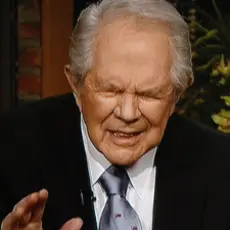Long before Kony 2012 became an Internet sensation, the film’s director, Jason Russell, was a hit with the Religious Right and the broader evangelical community. Russell, the founder of Invisible Children, has been lavished with praise on Pat Robertson’s Christian Broadcasting Network and on stage at Jerry Falwell’s university. Additionally, as Bruce Wilson has explored, Invisible Children has received substantial funding from extremely conservative Christian groups and foundations. Why?
The reason is not that Invisible Children is part of the Religious Right – it’s not. And while it’s true that the organization and the Religious Right share some interests and enemies in Uganda and Sudan, that’s not the reason either. Instead it’s the religious basis of the organization. Russell first went to Africa as a child missionary and formed the organization as an alternative to traditional missionary organizations, whose model he found problematic. While Russell and his staff are careful to project a strictly secular brand, Russell has projected quite a different image when speaking to evangelical and Religious Right audiences. In a 2010 podcast interview with Relevant magazine (listen below), Russell discussed his reason for keeping religion out of their brand and marketing:We just always felt really, not offended, but felt it was too delicate of a choice to put the cross on our website, or to put a fish on the website because you're honestly dealing with the truth, and the creator, and so to make a brand around that and to have money flow in and out around that idea, at least in our paradigm, felt cheap or inauthentic. … That's just me candidly speaking. […]He said that spirituality is an inescapable part of their work, but that it’s difficult to explain to a western audience that has been “raised on science, logic, and reasoning.”
Host: What conversations have you guys had about the holistic rehabilitation of some of the children you guys have worked with, and what role their spiritual development might play in some of the rehabilitation you believe should take place in their lives. Russell: For us, the mentors that are rehabilitating the children who've been affected by this for, it is not a question whether spirituality plays into it or doesn't. It is not something like a line item on an annual report or anything. It's like, of course. I've never met a Ugandan who is an atheist. […] Their spiritual life is so much more engaged and involved in their day to day, that having a spiritual holistic healing element to these children who have been affected by the war is a no-brainer. It's totally a part of the healing and the message. And at the same time it's difficult to communicate that or translate to the West who has been raised on science, logic, and reasoning and not so much the spiritual realm.He also addressed criticism from other Christians that Invisible Children isn’t doing enough to evangelize:
Host: How have you guys wrestled with the issues of faith, not only in your personal lives but in the stories of your organization, as you guys have become more and more a topic of mainstream conversation? Russell: For myself, I accepted Christ into my heart when I was 5, and my first experience with Africa was on a mission trip spreading the gospel through drama. There was a disillusionment, or a distaste, for that approach to the Christendom message being spread. I felt that there was a bridge that needed to be built. […] We're not afraid to say "I'm a lover of Christ and what he brought to Earth and what he's doing in the world." But there's such a delicate balance to bringing that into the work arena when it comes to the culture right now. I think that, there's been a lot of criticism that we've had over the years, but when it comes down to it, we are not afraid to say "I as an individual am this." But Invisible Children, it's not its mission to bring Christ's message to the invisible children. And when people say, "well why don't you bring Christ to those children in Uganda?" And my answer has always been, because they know Christ far more than I or anyone in Western world or in the Christian church knows Christ, because it's truly all that they've ever had. […]
Listen to the highlights of the podcast interview here:
Russell touched on similar topics at Jerry Falwell's Liberty University last November:





